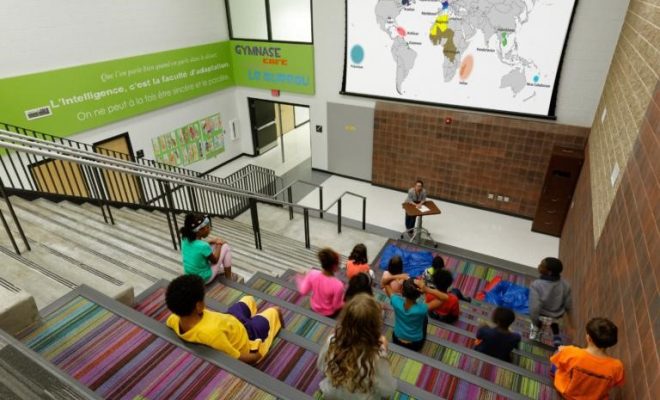Five Reasons to Teach Robotics in Schools

In today’s’ technology-driven world, it’s important now more than ever to prepare students for the future. Teaching robotics to young students throughout their schooling can increase their ability to be creative and innovative thinkers and more productive members of society. Many governments have already recognized the importance of robotics in the classroom and have begun to create programs and laws that would incorporate it into their public education system. By teaching our students the basics of robotics, we can open a whole new world to them and exciting opportunities that they wouldn’t have access to otherwise.
1. An Introduction to Programming
Learning to program a computer is an excellent skill to have to make students more likely to get a job in the future, and earn more money in their lifetime. Teaching young students the abstract subject of programming can be a challenging feat. Programming is often too complex for most students to grasp. Robotics is a simpler to understand and more tangible introduction to programming.
When students program physical robots, it’s easier for them to see what goes wrong as they learn what robots can and cannot do. They learn the skills needed to create precise and accurate instructions and have fun while learning valuable lessons. Teaching robotics in schools gives students the opportunity to address the growing demand of teaching STEM subjects while learning how science, engineering, math, and technology work together and interact.
2. Increases Creativity
Robotics is a production-based learning module. Students have the opportunity to create something tangible and make it perform the actions that they program it to do. Not a lot of fields combine creativity with engineering and technology—robotics does. When students are given the opportunity to create something interactive that they think is cool, their engagement levels increase, and they retain more information. You might be surprised at the things kids can create when given the right information and tools.
3. Prepare them for the future
It’s no secret that jobs in the STEM field are the fastest growing careers, and are projected to grow another 17 percent in the next decade. Industries such as the drone industry has grown dramatically and rapidly in the last couple of years. The Economist has reported that more than 15,000 drones are being sold in the US every month. Growing industries such as these are going to need people who can come up with new and innovative ideas, and be equipped with the knowledge to design and create the technology needed.
By the time all of our students graduate in a few years or so, over half of the available jobs will be in the STEM field and a large chunk of the rest will require employees to have some STEM knowledge. When students are introduced to robotics in their school years, they can discover any interests and talents that they may have in this job market. Without the knowledge or access to robotics education, there’s no way for students to build interest in these fields. Without robotics education in public schools, who knows how many potential creators and innovators there are who were never given the resources to realize their potential.
4. Teaching Children How to Turn Frustration into Innovation
Learning how to build and program a robot can be a complex and difficult process. Many students will struggle with the concepts at first and often get frustrated. Robotics in schools can help these students turn their frustration into creativity and innovation. This is a valuable life lesson that teaches our students perseverance and determination when faced with challenges. Students learning robotics are able to channel their frustration into trying harder and aiming higher. All their hard work makes looking at that finished product even sweeter at the end. Not only does teaching students robotics teach them how to persist and solve problems, but it also helps them increase their maturity levels and prepare them for real-world situations.
5. Promoting Inclusivity
Robotics is a field that is easily accessible to a wide range of students with varying talents and skills. Studies have shown robots do a great job of engaging students on the autism spectrum. A child with autism are able to easily respond to the consistent, calm, and clean interactions that robots give them. Robots like ASK NAO and Milo have been developed to aid autistic students with learning and understanding their emotions.
Robotics is also a field that has the ability to empower young girls in the classroom. STEM-focused fields are traditionally male dominated, leaving young girls to question their ability to program or build computers. Because the tech world is not one that focuses on or is created for girls, by engaging them with robotics and technology in the classroom we can begin to change that. When girls realize their ability to build robots and program, they are empowered to have successful futures and create innovative technology.






